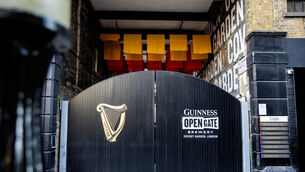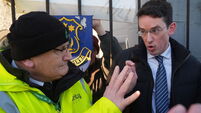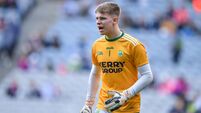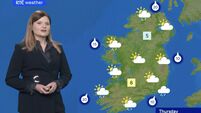Better year ahead forecast for Footsie
The FTSE 100 Index is forecast to have a better time following this year’s gloomy performance - and end 2002 around the 5,800 mark, City experts said today.
The Index has fallen 17% so far this year from its 6,222.5 start - to 5,159.2 at the close of trading today - and adding to last year’s 10% slump when tech stocks were sold off following the bursting of the dot-com bubble.
The highest point of the past year was January 30 when the Footsie touched 6,334.5, while the lowest was September 21 when it slumped to 4,433.7, following the September 11 terrorist attacks.
Predictably, the biggest single day percentage fall during the year was on September 11 itself, when the Footsie shed 5.7% to close at 4,746.
But although the future global economic outlook is steeped in uncertainty, analysts and economists are hoping for a perkier year on the markets in 2002.
Most economists are pencilling in a Footsie rally to 5,500 or above, with some predicting the market will surge to above 6,000.
However, predicting the Footsie is a notoriously difficult task, and forecasts for this year show how wrong commentators can sometimes be - some analysts last year forecasted the Footsie would end 2001 above 7,000.
Among the forecasts for the coming year, Hilary Cook, director of investment strategy at Barclays is predicting the market will end 2002 at 6,000, and is pencilling in a figure of 5,700 in three to six months’ time.
‘‘The market is discounting a lot of bad news at the moment. I believe as we go through 2002, the newsflow will start getting better on the corporate profit front. And as the market gains confidence we could see quite a rapid bounce,’’ she said.
Alex Scott at 7 Investment Management is forecasting 5,800 for the Footsie.
‘‘We are expecting it will be steady and unexciting - but we like that after two years of falls,’’ he said.
Philip Shaw, economist at Investec, said he was looking for a modest rise in the Footsie to between 5,300 and 5,500.
‘‘Although the index looks good value to us at current levels, especially compared with UK gilts, there is still the risk that growth will disappoint next year and that the US recovery will be delayed sometime into the second half of 2002,’’ he said.
Neil Dwane, chief investment officer of Dresdner RCM Global Investors, is forecasting the Footsie to end around 5,500, with a sluggish first half of 2002, and a pick-up in the second half.
And Mike Lenhoff, portfolio strategist at fund manager Gerrard is forecasting the Footsie will end 2002 above 6,000 - but said the 5,400 and 5,600 levels would be ‘‘buffers of resistance’’ which the Footsie would need some energy to get past.
However, while most commentators are bullish on next year’s growth, Tom Hougaard at bookies Financial Spreads thinks the Footsie will slide further next year - and is pencilling in a figure of 3,800 to end the year.
He said: ‘‘There will be some steep and sharp rallies in the year but the trend is firmly down. The economic climate will deteriorate and this will put pressure on the UK as well which unfortunately can’t isolate itself from the malice of the US.’’
But with commentators in general expecting a rally in the global economy next year, interest rates - which have been cut from 6% to 4% this year - are likely to start edging back up towards the end of 2001, to end around the 4.5% mark.
Mr Dwane predicts rates will dip to a low of 3.5% in 2002, but will start to rise in the second half of the year to close the year around 4% to 4.5%.
Geoff Dicks, economist at Royal Bank of Scotland is forecasting rates will end the year at 4.5%. He is predicating one cut of 0.25% and three hikes, towards the end of the year.
Mr Shaw is predicting rates will fall to 3.75% early next year but will then be hiked up towards the year end to finish 2002 at 4.75% - although the rising trend is then expected to continue into 2003.
And Mr Lenhoff is forecasting UK interest rates will end the year at 4.5%, and thinks rates could already have bottomed.
















